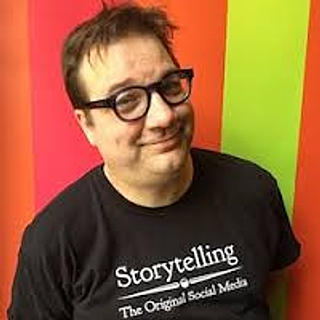Storytelling and Healing
- Kevin Cordi
- Feb 25, 2018
- 4 min read

Listening to story is a Healing Practice
initially recorded on DECEMBER 31, 2010
in STORYTELLING AND HEALING
Storytelling: A Healing Art

As we discuss our healthcare, let us not forget the value of listening. This reminded me of an interview that I did and thought I would share again.
Healing is about listening and what better way than telling stories?

Storytelling is a way we can address healing. Increased pain and frustration happens when we are silenced. As a storyteller, I have learned to listen and most important to hear what is not said. The more I work with storytelling, the more I value silence. Sometimes it takes a pause in order for someone to speak or listen. Sometimes we need to breathe with the silence before a story starts.
A graduate student Carol enrolled at the University of Tampa interviewed me for a paper addressing storytelling and healing. She kindly sent me the transcription which I share with you.
An Interview with Kevin Cordi, at the time I served as the first Academic Storyteller in Residence for
The Ohio State University

CarolAnn: What makes a great storyteller to you?
Kevin Cordi: A great storyteller is not as important as having many storytellers who care to learn the art and develop it in their own style over time. I believe “talent comes with time and practice.” As the late great storyteller Jackie Torrence once said to me, “It is not important how many stories you know, but do you have the story the person needs for this moment.” This guides my thinking when it comes to story.
CarolAnn: How do you choose your content?
Cordi: I choose my content based on the needs of those listening. No program is every done the same way twice.
CarolAnn: How has spiritual healing stories inspired you?
Cordi: Stories of difference, stories of celebration, stories of understanding, stories of healing come when you least expect it. Yesterday I told stories for the disability office and I heard stories of being electrocuted, surviving Parkinson’s and playing the piano, studying in Italy when no one said you could, …these stories happened when I was not the teller, but the listener. I was later told one student had never talked to anyone in the years she had been attending college, but we did more than talk, I told her story is vital and important and should be published. We are exploring this now. These stories inspire me. I tell so I can listen more.

CarolAnn: Do you mostly use your life experiences to generate an original story?
Cordi: I use them, but I also gear my ear and eye and heart to hear other stories. Two days ago I received permission to tell a story about an inmate who was tattooed on his back in Spanish a poem of Ann Frank. It is amazing story. I feel the need to carry it forward. Just because I didn’t live the story does not mean I am not allowed for the story to live.
CarolAnn: Do you have advice for young people of today?
Cordi: Tell. Listen more than you tell. Ask questions. Experiment. Take Risks. Ask more.
CarolAnn: Have you had any uncanny experiences that have inspired your storytelling?
We can listen at any age.

Cordi: I have had many things occur, I have worked with a Navajo Code talker, talked with Veterans of World War I, told stories after the Charlie Daniels Band, met Popcorn Sutton, the biggest moon shiner in TN, spent time with San Juan Pueblos, told stories with the lollipop guy in the original Wizard of Oz, addressed the Vice Minister of Education in Japan, and told stories for the “first lady” of Singapore. All these stories and experiences help me raise my voice so that I can share it with others.
CarolAnn: Do you see any changes in your character over the years because of your experience as a storyteller?
Cordi: In over 20 years as a storyteller and educator, I am now taking stories in new directions. I now tell with 30 students in a program called ensemble storytelling and I am realized the inherent power of non-performance stories. Stories are meant to be shared, but don’t always have to performed to be shared. I am working with businesses, healing centers and other places to accentuate voices and share the community that is established by stories.
Cordi: “Together we make a difference with story.”
Feel free to comment or share how stories have helped you in the healing process or how you were able to help others with stories. Remember, regardless of who we are and how old we are, the time is right for story sharing.
Have you made time to listen today?
Afterward : I found Richard Stone's Book The Healing Art of Storytelling quite useful. You can get this by clicking on the link. Dr. Stone trains his staff to listen to stories before ailments. It has made quite a difference in recovery.
Be sure to check out Kevin's new work Playing with Stories. You can find this book by clicking this link. We invite you to subscribe to his blog to find out more about storytelling practices.





Storytelling has long been a powerful form of healing, allowing individuals to express emotions and connect with others through shared experiences. For those requesting a write my essay service, our company offers assistance in organizing thoughts, structuring content that captures the essence of healing through storytelling.